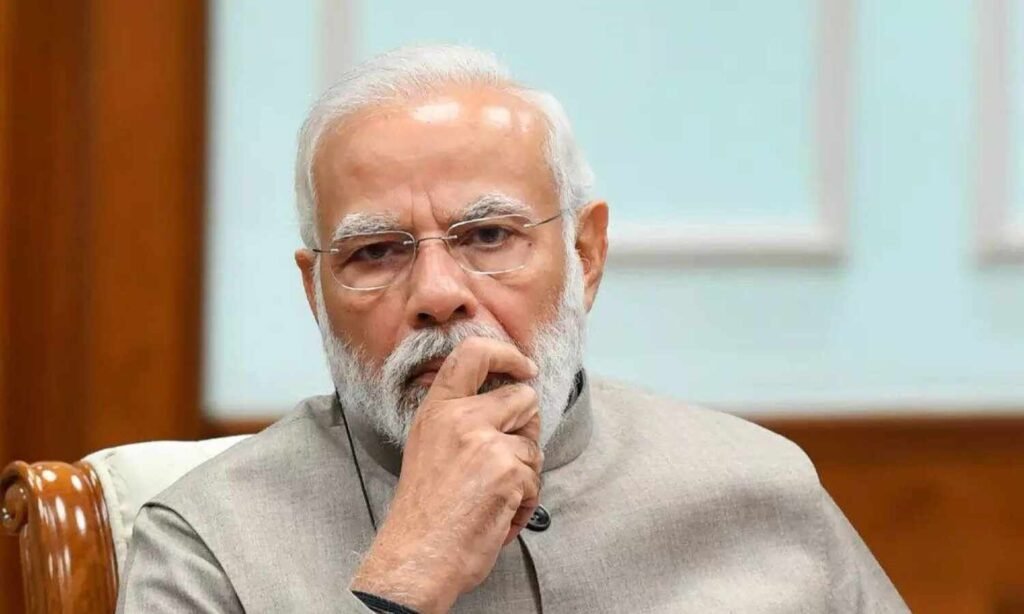The colonial education system inherited by India was to create a “servant class” for the British rulers and a lot of it remains unchanged. Prime Minister Narendra Modi said that the National Education Policy 2020 opens the doors for youth to find solutions to the problems of the world through a modern education system with an Indian ethos.
Inaugurating the three-day Akhil Bhartiya Shiksha Samagam on the implementation of the National Education Policy at Banaras Hindu University, Varanasi on Thursday, Modi said, “The foundation of the NEP 2020 is to take education out of narrow thinking and connect it with the modern ideas of the 21st century.” There has been no dearth of talent in our country. But unfortunately, we inherited a system where the meaning of education was to get a job. The British designed the education system to fulfil their needs. Things did change post-independence, but a lot was left to be done. The education system created by the Britishers was never part of the Indian ethos. ”
Speaking on creating a new modern system via the NEP, the PM said: “We should not just produce degree-holding youth but make our education system such that we create human resources that are needed for the country to take it forward.” the PM said. We have to delve into the details of the challenges and problems and find solutions. The NEP is opening doors for education in Indian languages. “I have confidence that India could emerge as a world education destination,” the PM said.
The PM said that “innovative thoughts and new ideas” should be discussed at the summit and advised universities to think about how they partner with the government in different areas. “You have to decide your expertise.” In the area where you are, you should do a survey, conduct a study, and advise the government. You should identify problems, resources, and solutions to them within a 50-100 km radius of universities. ”
At the same time, Modi urged the heads of institutions and others to think in terms of keeping pace with modernity in education while also taking care of present needs. He gave the example of how children today cite Google to counter others.
The PM said that the responsibility to create institutions of repute lies with the heads present at the summit so that when talented students step onto their campuses, they don’t feel disappointed.
“While inaugurating a centralised kitchen for midday meals earlier today, I had the opportunity to interact with children in the age group of 10–11 years. Within those 10-15 minute intervals, they have inspired me with their talent, confidence, and diversity. They are children from one of our government schools. What I want to say is that when such a talented young generation reaches your institutions, you won’t be there, but by then you should have established the institution to that standard so they don’t miss out on anything. This big responsibility is on you. And I believe the brainstorming in the next three days on the implementation of the NEP will give an effective direction towards that, “said Modi.
Regarding the importance of the NEP, Modi said: “After the policy, the responsibility on the youth has increased even more. Along with this, our responsibility has also increased that we should continuously encourage the dreams and aspirations of the youth, understand their minds, and understand their aspirations. The era that imposed anything without understanding has gone. We have a blueprint of education, institutions, and human resources keeping this in mind. Children should be trained in areas where they excel.Education policy is preparing the ground for this. ”
The meeting brings together over 300 educationists, including vice-chancellors and directors from public and private universities, to discuss the implementation of NEP 2020. Uttar Pradesh governor Anandiben Patel, chief minister Yogi Adityanath, and Union education minister Dharmendra Pradhan also participated in the summit.
Modi also spoke about a major overhaul of the education infrastructure in the country. Many new colleges, universities, IITs, and IIMs are opening in the country. There has been an increase of 55% in the number of medical colleges after 2014, he said. The common entrance test for universities will bring ease and equality to university admissions.
“The National Education Policy is now opening the way for studies in the mother tongue.” “In this sequence, ancient Indian languages like Sanskrit are also being carried forward,” he said. Expressing confidence that India can emerge as a major centre of global education, Modi said: “Guidelines have been issued to prepare Indian higher education as per international standards.” “Special offices have been established in 180 universities for international affairs of the institutions,” and asked experts to be aware of the international practises in the field.


